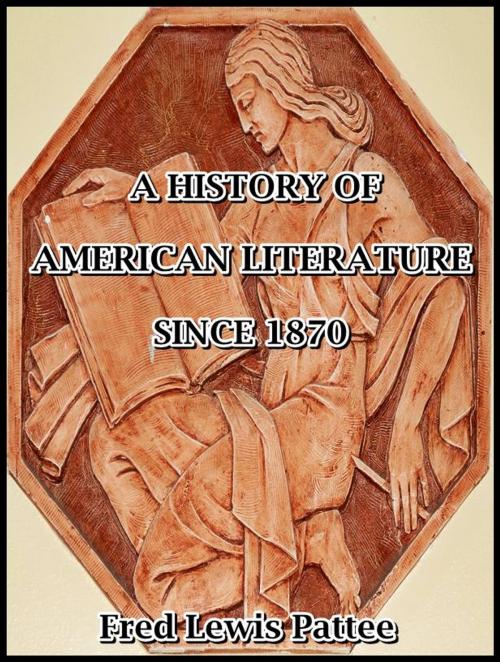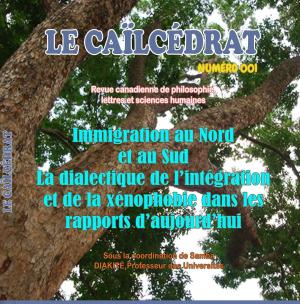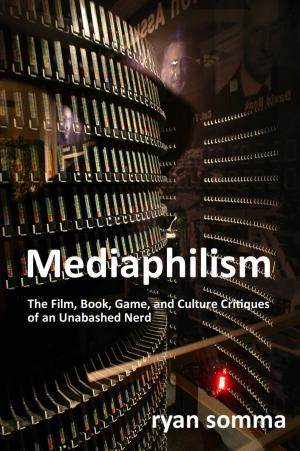A History of American Literature Since 1870
Fiction & Literature, Literary Theory & Criticism, Reference, American, Books & Reading| Author: | Fred Lewis Pattee | ISBN: | 1230000218563 |
| Publisher: | D. APPLETON-CENTURY COMPANY | Publication: | February 14, 2014 |
| Imprint: | Language: | English |
| Author: | Fred Lewis Pattee |
| ISBN: | 1230000218563 |
| Publisher: | D. APPLETON-CENTURY COMPANY |
| Publication: | February 14, 2014 |
| Imprint: | |
| Language: | English |
A History of American Literature Since 1870
It has been our object to determine this new period and to study its distinguishing characteristics. We have divided the literary history of the century into three periods, denominating them as the Knickerbocker Period, the New England Period, and the National Period, and we have made the last to begin shortly after the close of the Civil War with those new forces and new ideals and broadened views that grew out of that mighty struggle.
The field is a new one: no other book and no chapter of a book has ever attempted to handle it as a unit. It is an important one: it is our first really national period, all-American, autochthonic. It was not until after the war that our writers ceased to imitate and looked to their own land for material and inspiration. The amount of its literary product has been amazing. There have been single years in which have been turned out more volumes than were produced during all of the Knickerbocker Period. The quality of this output has been uniformly high. In 1902 a writer in Harper's Weekly while reviewing a book by Stockton dared even to say: "He belonged to that great period between 1870 and 1890 which is as yet the greatest in our literary history, whatever the greatness of any future time may be." The statement is strong, but it is true. Despite Lowell's statement, it was not until after the Civil War that America achieved in any degree her literary independence. One can say of the period what one may not say of earlier periods, that the great mass of its writings could have been produced nowhere else but in the United States. They are redolent of the new spirit of America: they are American literature.
In our study of this new national period we have considered only those authors who did their first distinctive work before 1892. Of that large group of writers born after the beginning of the period and borne into their work by forces that had little connection with the great primal impulses that came from the Civil War and the expansion period that followed, we have said nothing. We have given the names of a few of them at the close of chapter 17, but their work does not concern our study. We have limited ourselves also by centering our attention upon the three literary forms, poetry, fiction, and the essay. History we have neglected largely for the reasons given at the opening of chapter 18, and the drama for the reason that before 1892 there was produced no American drama of any literary value.
A History of American Literature Since 1870
It has been our object to determine this new period and to study its distinguishing characteristics. We have divided the literary history of the century into three periods, denominating them as the Knickerbocker Period, the New England Period, and the National Period, and we have made the last to begin shortly after the close of the Civil War with those new forces and new ideals and broadened views that grew out of that mighty struggle.
The field is a new one: no other book and no chapter of a book has ever attempted to handle it as a unit. It is an important one: it is our first really national period, all-American, autochthonic. It was not until after the war that our writers ceased to imitate and looked to their own land for material and inspiration. The amount of its literary product has been amazing. There have been single years in which have been turned out more volumes than were produced during all of the Knickerbocker Period. The quality of this output has been uniformly high. In 1902 a writer in Harper's Weekly while reviewing a book by Stockton dared even to say: "He belonged to that great period between 1870 and 1890 which is as yet the greatest in our literary history, whatever the greatness of any future time may be." The statement is strong, but it is true. Despite Lowell's statement, it was not until after the Civil War that America achieved in any degree her literary independence. One can say of the period what one may not say of earlier periods, that the great mass of its writings could have been produced nowhere else but in the United States. They are redolent of the new spirit of America: they are American literature.
In our study of this new national period we have considered only those authors who did their first distinctive work before 1892. Of that large group of writers born after the beginning of the period and borne into their work by forces that had little connection with the great primal impulses that came from the Civil War and the expansion period that followed, we have said nothing. We have given the names of a few of them at the close of chapter 17, but their work does not concern our study. We have limited ourselves also by centering our attention upon the three literary forms, poetry, fiction, and the essay. History we have neglected largely for the reasons given at the opening of chapter 18, and the drama for the reason that before 1892 there was produced no American drama of any literary value.















